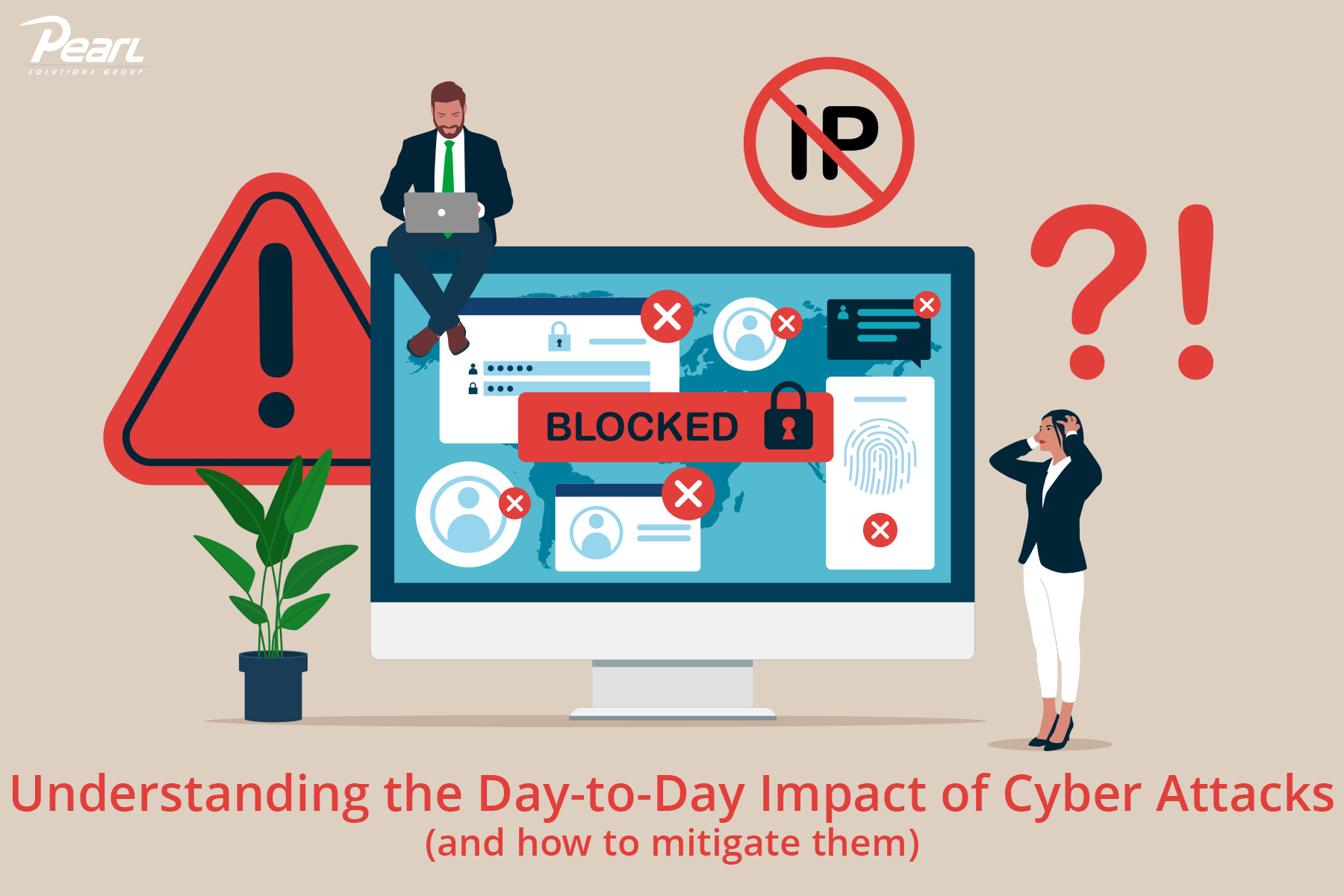Fastly recently released a report on the effects of cyberattacks. The report found that businesses lost 9% of their revenue over the last 12 months as a direct result of the cyber attacks. The organizations within the report highlighted network outages (34%), data loss (29%), web applications being taken offline (24%) and customer account compromises (22%) as the most common damages. Let’s take a closer look at understanding the day-to-day impact of cyber attacks within these areas and how to mitigate them.
A network outage can have significant impacts on a small business’s daily operations. Employees may be unable to access critical applications, files, or communication tools leading to a substantial decrease in productivity. Automated operations may be delayed or disrupted during a network outage, impacting supply chain management, order fulfillment, and other essential processes. If the outage affects customer-facing systems, it can lead to dissatisfaction among customers and lost sales due to the inability to process orders. A network outage can sometimes result in data loss if proper backup measures are not in place. Additionally, during an outage, security measures may be compromised, exposing the business to additional threats. Direct cost consequences can include increased IT costs for emergency support and fines due to regulatory compliance violations.
To mitigate the impact of network outages, small businesses should invest in robust and redundant network infrastructure, implement effective backup and recovery solutions, and have a well-defined disaster recovery plan in place. Regular maintenance, monitoring, and updates can also help prevent many network-related issues.
Data loss can have significant and far-reaching consequences for a small business. When data is lost or unavailable to employees, they cannot access what they need to interact with customers or process through operations leading to delays, mistakes, and possibly a stand-still. Customers are increasingly concerned about the security of their data so a loss or breach of that data by a small business can cause irreparable damage to any loyalty that customer has and result in canceled or lost future business. Depending on the nature of the lost data, a business may face legal and regulatory consequences which pull physical and financial resources away from you business. For businesses that rely on proprietary information or intellectual property, data loss can result in the theft or exposure of sensitive and valuable assets with long-term consequences in remaining competitive.
To mitigate the impact of data loss, small businesses should implement robust data backup strategies, invest in cybersecurity measures, and educate employees about the importance of data security best practices. Regularly testing backup systems and having a comprehensive disaster recovery plan in place are essential components of a proactive approach to data protection.
Web applications often play a crucial role in the day-to-day operations of a small business. From order processing to customer communication, inventory management, and more, an offline web application can disrupt these operations, leading to inefficiencies and potential errors. If your business relies on its online presence to attract new customers and opportunities but the web application is down, you may lose search engine rankings, online visibility, organic traffic, and potential leads. Businesses in certain industries may have specific requirements for data availability, and failing to meet these standards could lead to legal consequences.
To mitigate these impacts, small businesses should have contingency plans in place, including regular backups, security measures, and a response strategy for handling downtime. Additionally, investing in reliable hosting services, implementing redundancy measures, and staying proactive in addressing potential issues can help minimize the impact of web applications being taken offline.
Customer account compromises may be the biggest nightmare for any small business. Unauthorized access to customer accounts can result in financial losses for both the affected customers and the business itself and the business may be liable for reimbursing customers for any fraudulent transactions, punitive damages, and other legal costs. Customers who experience security breaches or unauthorized access to their accounts may choose to take their business elsewhere, but even unaffected customers can lose trust in your business, compromising potential business and competitiveness in the marketing moving forward. In the short term, responding to a customer account compromise can be time-consuming and may disrupt normal business operations while resources are allocated to investigate the breach, implement security measures, and communicate with affected customers.
To mitigate these risks, small businesses should prioritize cybersecurity measures, including regular security assessments, employee training, and the implementation of robust security protocols to safeguard customer accounts and sensitive data.
Pearl Solutions Group can help you build and strengthen your security posture to reduce the risks of a cyber attack. Get started with a self-assessment.




